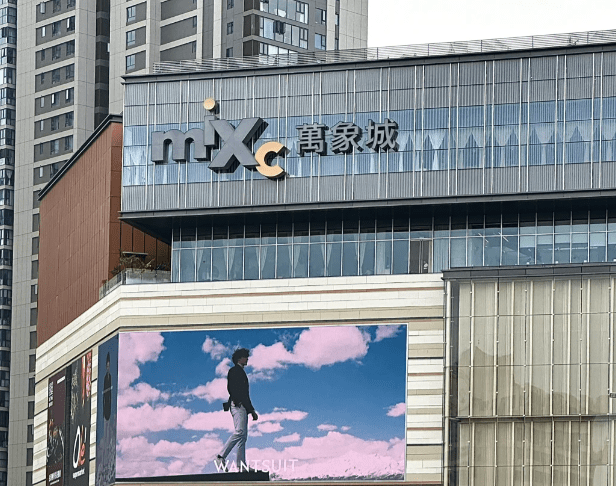 alt="Puer Surrounding Counties and Towns: Weekly & Special Local Markets Travel Guide"
/>
alt="Puer Surrounding Counties and Towns: Weekly & Special Local Markets Travel Guide"
/>
Lanping County Shopping
Lanping is located in the Three Parallel Rivers of Yunnan Protected Areas (Chinese: 云南三江并流) , which is a UNESCO World Heritage Site in Yunnan province, China. It is a beautiful place where is famous for its ethnic scenic spots and special local food. If you travel around Lanping, do not forget to bring some local food for your friends and your relatives.
1.Pumi Clothing(普米族服饰)
Pumi women in Ninglang and Yongsheng often wear jackets with buttons down one side, long, pleated skirts, multi-colored wide belts and goatskins draped over their backs. In the Lanping and Weixi areas, women tend to wear green, blue or white long-sleeved jackets under vests, trousers and embroidered belts. Women often wind their plaited hair mixed with yak tail hairs and silk threads and then wrap their heads in large handkerchiefs, Jewelry, such as silver earrings and bracelets, is prized by the women. Men normally wear linen jackets, loose trousers and sleeveless goatskin jackets. Some of them also carry long swords and deerskin bags. Pumi people over thirteen must go through the ablution rites of manhood and only after ablution may they put on adult clothing and take part in society's activities.
2.The Crafts of Bai People(白族工艺品)
The Bai people are masters of artistic creativity including architecture, sculpture, painting, music, and other craft techniques such as lacquer work. The great Three Pagodas in Dali, having stood since the Tang Dynasty (618-907), and resembling the Small Wild Goose Pagoda in Xian are excellent examples of Bai creativity and skill. Contemporarily, their dance and music spread among the Han people after becoming accepted as part of the court entertainment. In the Yuan (1271-1368) and Ming (1368–1644) Dynasties, the majority of the skilled lacquer artisans were selected from Yunnan Province.
3.Bai People Clothes(白族服饰)
The Bai people favor white clothes and decorations. White in Chinese is pronounced 'Bai', so maybe this is where their name derives from. Women in Dali traditionally wear a white coat trimmed with a black or purple collar, blue loose trousers; embroider shoes, silver bracelets and ear rings.
4.The Cured Ham Of Bai People(白族腌火腿)
All ham start out as a roast from the hind leg of a hog. This is called a fresh ham. Before it is prepared it is no different than any other pork roast. How it gets to be a ham is something of a complicated story.
Hams are prepared in several different ways. They can be aged, cured, smoked or cooked. The ham you get at the store is generally wet or brine cured. This process involves injecting the ham with a combination of salt, sugar, sodium nitrite, sodium nitrate, sodium erythorbate, sodium phosphate, potassium chloride, water and/or flavorings. The ham is then cooked to an internal temperature of 150 degrees F. The combination of the chemical brine and the cooking will kill off bacteria and make a ham.
5.Milk Fan(乳扇)
Rushan is a specialty of Bai ethnic group. It is made of the milk produced by local cows. It has a shape of a fan. Rushan does not only taste good, but is also nourishing. It contains many substances necessary to human bodies such as protein and amino acid. It can also regulate people’s lifeblood, soothe the nerves and strengthen the appetite, and thus is an ideal food to strengthen your corporeity and keep you fit. You can cook Rushan in different ways: fry, braise, bake, boil, blast, steam or stir-fry.

 7 Days GolfingTour
7 Days GolfingTour
 8 Days Group Tour
8 Days Group Tour
 8 Days Yunnan Tour
8 Days Yunnan Tour
 7 Days Shangri La Hiking
7 Days Shangri La Hiking
 11 Days Yunnan Tour
11 Days Yunnan Tour
 6 Days Yuanyang Terraces
6 Days Yuanyang Terraces
 11 Days Yunnan Tour
11 Days Yunnan Tour
 8 Days South Yunnan
8 Days South Yunnan
 7 Days Tea Tour
7 Days Tea Tour
 8 Days Muslim Tour
8 Days Muslim Tour
 12 Days Self-Driving
12 Days Self-Driving
 4 Days Haba Climbing
4 Days Haba Climbing
 Tiger Leaping Gorge
Tiger Leaping Gorge
 Stone Forest
Stone Forest
 Yunnan-Tibet
Yunnan-Tibet
 Hani Rice Terraces
Hani Rice Terraces
 Kunming
Kunming
 Lijiang
Lijiang
 Shangri-la
Shangri-la
 Dali
Dali
 XishuangBanna
XishuangBanna
 Honghe
Honghe
 Kunming
Kunming
 Lijiang
Lijiang
 Shangri-la
Shangri-la
 Yuanyang Rice Terraces
Yuanyang Rice Terraces
 Nujiang
Nujiang
 XishuangBanna
XishuangBanna
 Spring City Golf
Spring City Golf
 Snow Mountain Golf
Snow Mountain Golf
 Stone Mountain Golf
Stone Mountain Golf



 What Our Customers Say?
What Our Customers Say?
